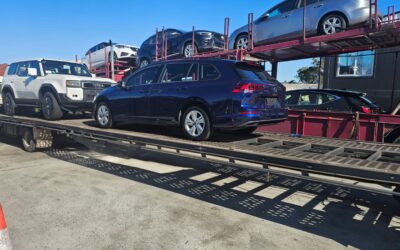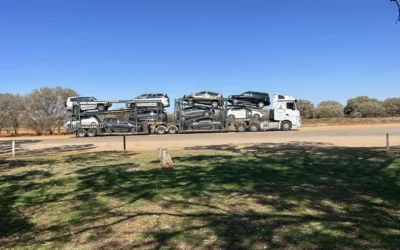Being involved in a car accident is stressful enough without having to worry about what happens next. In those confusing and emotional moments, one of the first things that often comes up is how your damaged vehicle will be towed. Many drivers don’t realize that accident towing in Australia is governed by strict laws designed to protect motorists from unfair practices. Knowing your rights can save you from unnecessary costs, disputes, and extra stress during an already difficult situation.
In this article, we’ll break down how accident towing laws work across Australia, what your rights are, and the steps you should take if you ever find yourself in this situation.
What Is Accident Towing?
Accident towing refers to the removal of a vehicle from a crash scene when it is no longer safe or legal to drive. Unlike standard towing services (such as moving a broken-down car), accident towing usually requires a licensed operator who has permission to attend crash scenes. Because accidents can happen on public roads, the government closely regulates this industry to ensure fair treatment of motorists.
Who Can Tow Your Vehicle After an Accident?
One of the most important things to understand is that not every tow truck can simply show up and take your car. In most states and territories, only licensed accident towing operators can remove a vehicle from a crash scene. These operators must meet certain standards, including proper insurance, driver accreditation, and a registered depot where your vehicle will be taken.
If an unlicensed tow truck attempts to tow your car, you have the right to refuse. Always check credentials before agreeing to a tow.
Do You Have a Choice in Who Tows Your Car?
Yes—you usually do. While police may sometimes arrange towing for safety reasons, in many cases the vehicle owner (or the driver at the time of the accident) has the right to choose which licensed towing company they want.
That means you are not obliged to use the first tow truck that shows up at the scene. Unfortunately, “tow truck chasers” often arrive quickly after an accident, pressuring drivers into signing contracts on the spot. Be cautious—once you sign, you may be locked into high fees or storage costs.
Tip: If you already have a trusted towing provider, such as Unicorn Car Transport, keep their contact details saved in your phone so you can call them directly when needed.
What Costs Should You Expect?
Accident towing fees are regulated by state authorities, meaning there is usually a set maximum amount that licensed operators can charge for towing and storage. For example:
- Victoria: Accident towing and storage fees are fixed by the state government.
- Queensland: Maximum towing and storage fees apply for regulated accident towing areas.
- New South Wales: Charges must be fair and reasonable, and you can request an itemised invoice.
Never agree to pay cash upfront at the scene. A legitimate operator will provide a proper invoice.
Where Will Your Car Be Taken?
After your vehicle is towed, it must be taken to either:
- The towing company’s licensed holding yard, or
- A location agreed upon by you (such as your home or chosen repairer).
You have the right to know exactly where your car is being stored and how to access it. Storage fees may apply if your car remains in the depot, so it’s a good idea to arrange collection or repairs as soon as possible.
Your Rights Under Insurance
If your vehicle is insured, your insurer may cover accident towing costs. However, insurers often have preferred towing providers. In many cases, your policy allows you to choose your own tow truck, but you should notify your insurer as soon as possible after the accident.
Failing to follow your insurer’s rules could affect your claim, so always check the details of your policy.
What To Do If You’re Involved in an Accident
Here are some practical steps to protect yourself after a crash:
- Stay safe first – Move to a safe area if possible and check for injuries.
- Contact authorities – Call police if required (e.g., if there are injuries or major damage).
- Don’t rush – Tow truck operators may pressure you to sign quickly. Take your time to read documents carefully.
- Check licensing – Ask for the tow truck driver’s licence and company details.
- Ask questions – Confirm towing fees, storage costs, and the destination of your vehicle.
- Call your insurer – Inform them of the accident and follow their guidance.
Protect Yourself From Unfair Practices
Sadly, some unlicensed or dishonest operators try to take advantage of drivers after accidents. Common tactics include hidden storage fees, towing your car without consent, or refusing to release your vehicle until large payments are made.
Remember:
- You cannot be forced to sign a towing contract you’re uncomfortable with.
- You have the right to choose your tow truck provider.
- Fees must comply with state regulations.
If you feel you’ve been treated unfairly, you can report the incident to your state’s consumer protection agency or transport authority.
Final Thoughts
Accidents are stressful, but knowing your rights around towing can make a huge difference in how smoothly things go afterward. In Australia, accident towing is carefully regulated to protect motorists, yet confusion and pressure at crash scenes still lead many people into costly mistakes.
By staying calm, asking the right questions, and choosing a trusted, licensed operator, you can avoid being taken advantage of during a vulnerable time.
At Unicorn Car Transport Australia, we’re committed to providing transparent, reliable, and fully licensed towing services. If you’re ever in an accident, keep our details handy—you’ll know your vehicle is in safe and trustworthy hands.


